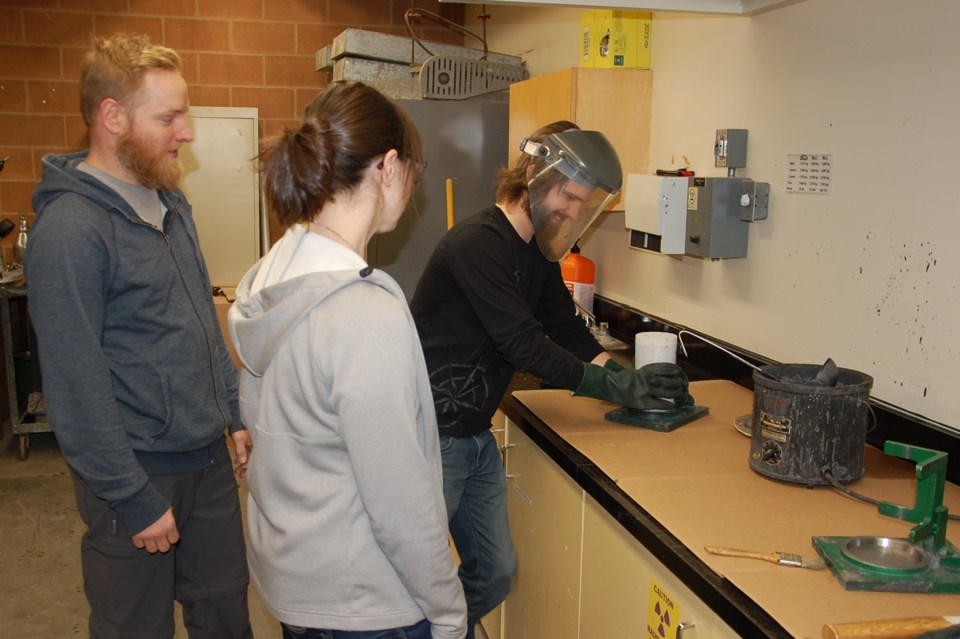THUNDER BAY – Students of Confederation College’s Civil Engineering Technology program have been getting hands-on experience testing concrete cylinders to failure, helping them to build a solid educational foundation for their future success. From mixing to testing students learn how to ensure concrete mix and pour meets minimum specifications, just as they will in their future careers. The result is always the same: the solid four-inch by eight-inch concrete cylinders are reduced to a crumbling mess. The only difference is how much pressure they can withstand before they fail.
Curtis Gural’s cylinder failed faster than some, though he said that he wasn’t surprised. “When we mixed it, it was wetter than we were expecting,” he said. “We did a slump test, and it wasn’t supposed to drop as much as it did. I kind of thought it wasn’t going to pass the other tests either.”
Gural is no stranger to concrete. Several years ago, he left the restaurant industry where he was a chef to enter construction to get a change of pace. He loves the hands-on learning the Civil Engineering Technology program gives him. With a family and a mortgage, he also appreciates that he can work while he goes to school.
Pouring concrete in his day job is much different than learning all the properties behind it, which is what this program is teaching him. “On a job site, I’m helping other people pour, but I don’t know enough to do it on my own.”
Not yet, anyway. As Tanya Belisle, the lab technologist overseeing the student testing day, pointed out, this is exactly where students are supposed to make mistakes. “That’s what this lab is for,” she said. “It’s a safe place for students to learn about concrete and get hands-on experience.”
Matt Watts, another student in the class, liked the fact that they were learning advanced techniques during their first year. “There’s lots of hands-on work that’s applicable right away. At university, the learning was very broad, but at the College, I’m practicing things that are directly related to the job.”
Watts graduated with a Chemistry degree but couldn’t find a job that he wanted. He enrolled at Confederation College because it would fast-track him to a career that he loved. “Most jobs are technologist-driven,” said Watts. “You can move up as a technologist and do quite well for yourself.”
Part of what makes the program so effective is the work placement in the fourth semester. Lesley Dell, program coordinator for the Civil Engineering Technology program, said that it’s not just in-the-field experience; it’s also a type of extended job interview.
“The work placement is a great tool for our students and for our industry partners,” Dell said. “Students will work with an employer during their work placement, and often go on to summer employment with them. Many of them transition to a full-time position after that. It’s a win-win for everyone.”
Dell said that with the shortage of civil engineering technologists in northwestern Ontario, just about every student who wants to have a job in their field will have it before convocation. “Our graduates are highly sought after,” she said. “In the last few years, employers have had more jobs than we’ve had graduates.”
For more information about the Civil Engineering Technology program and to apply, visit www.confederationcollege.ca/civil-engineering.